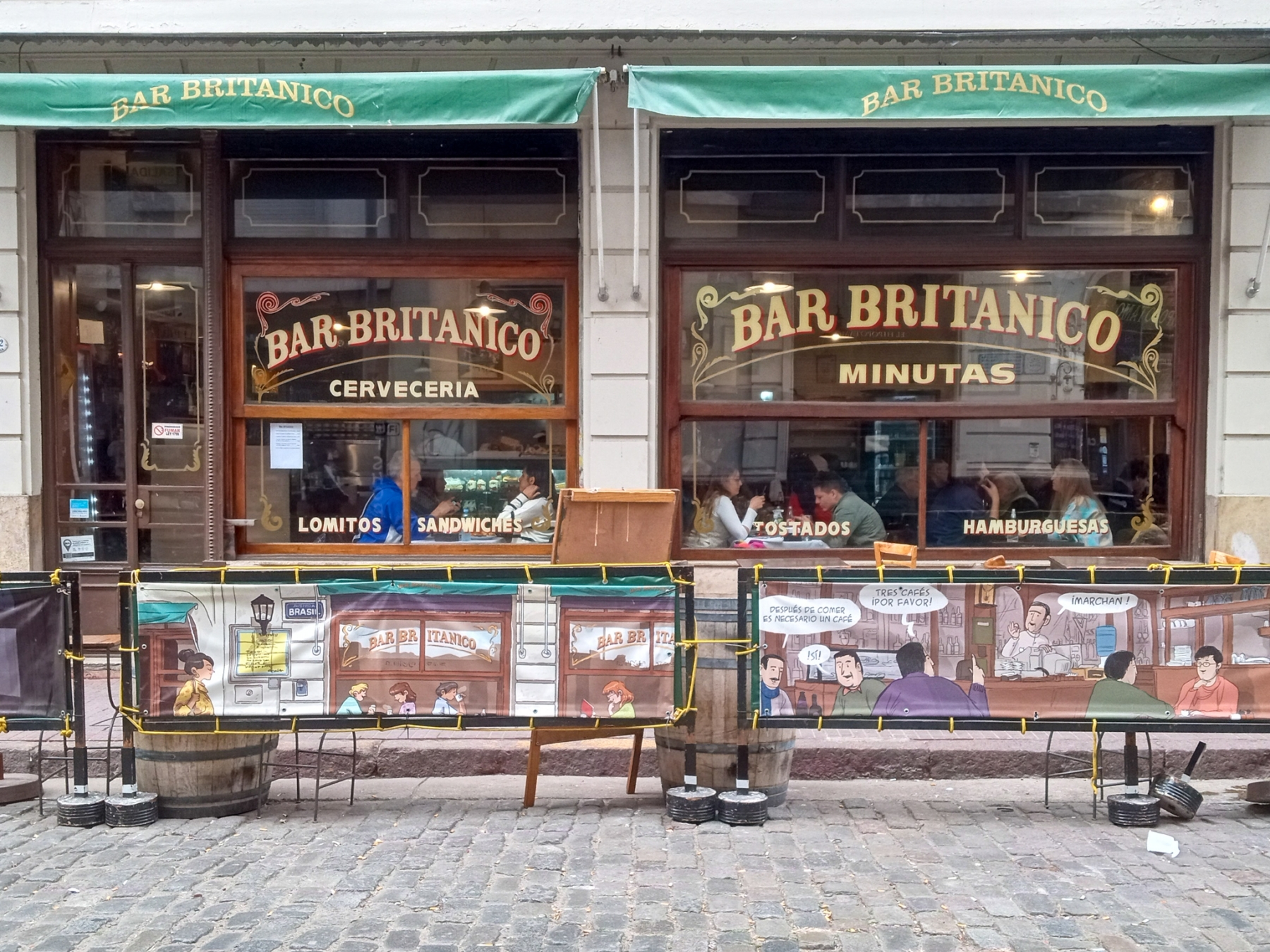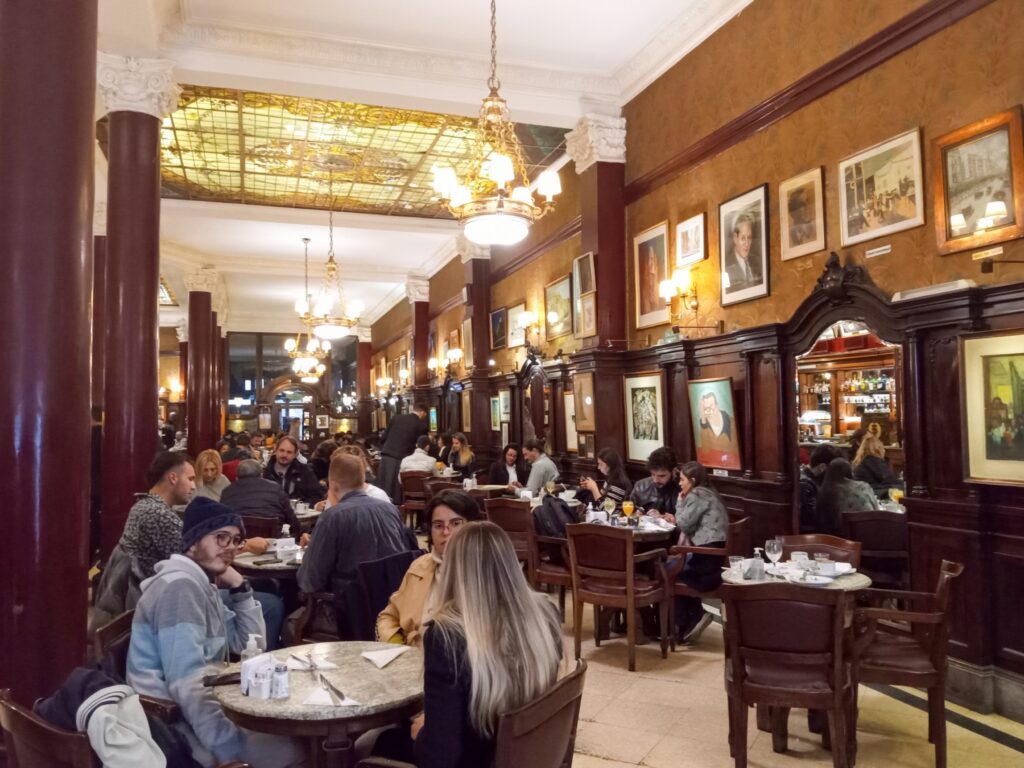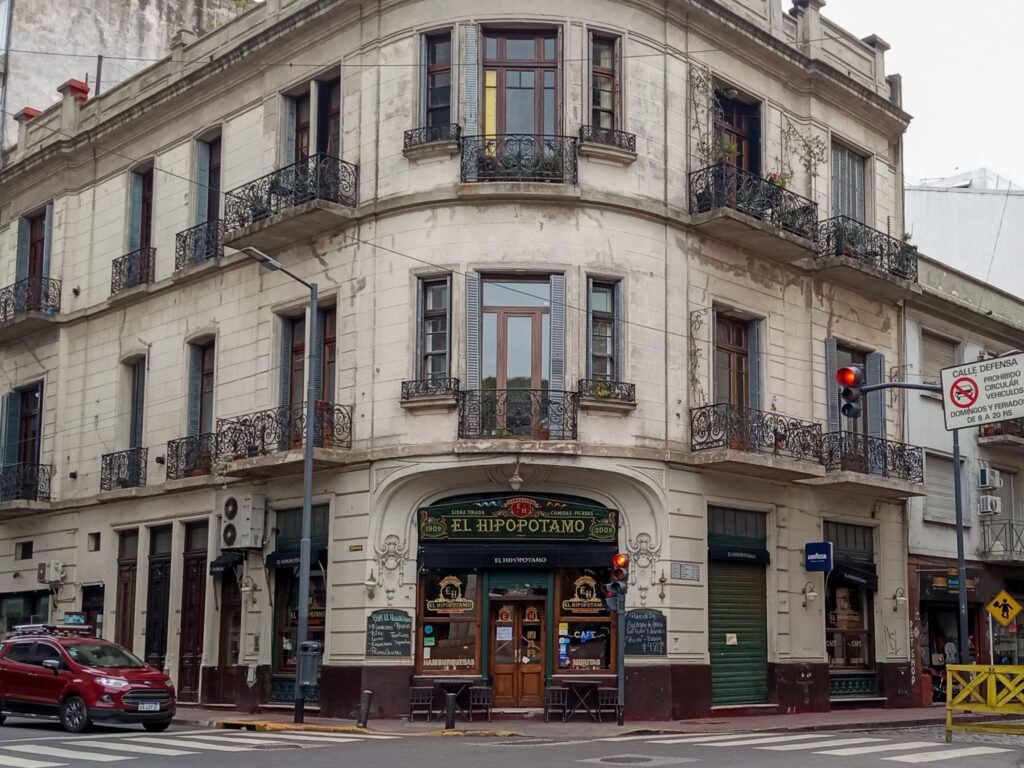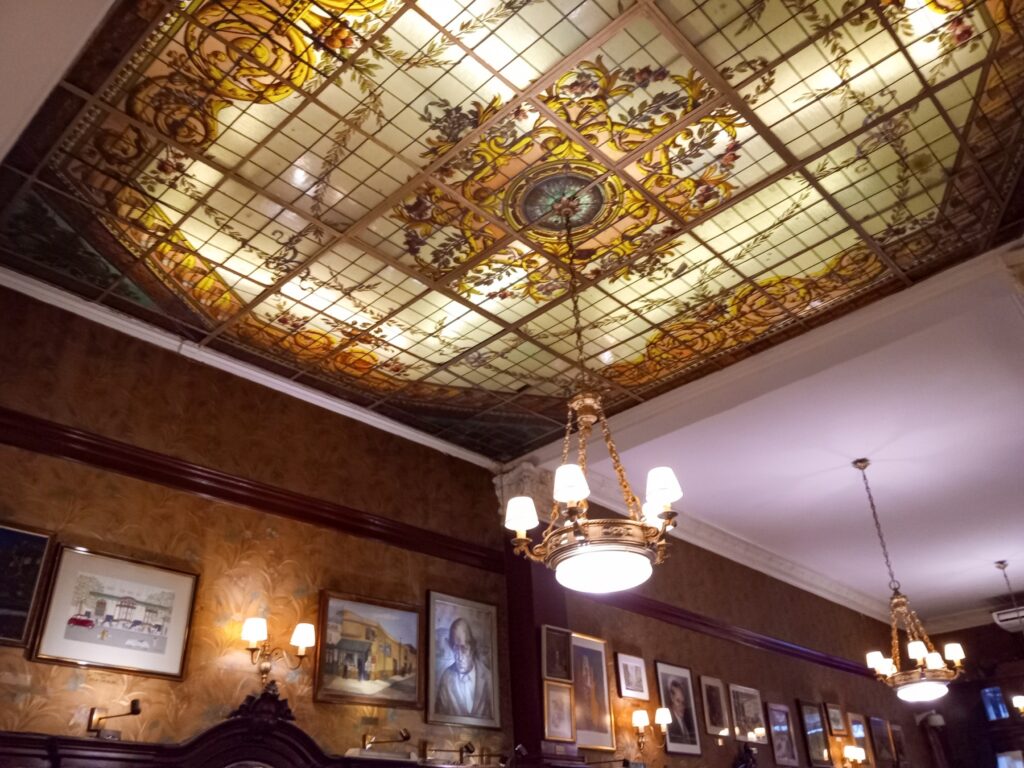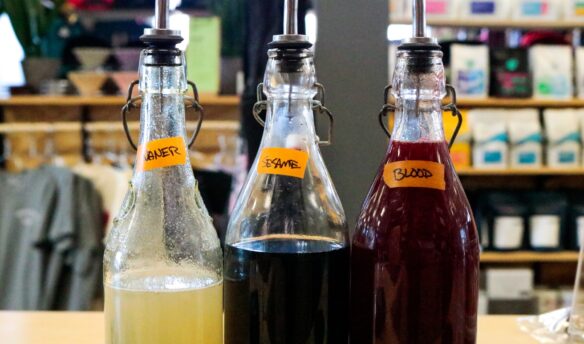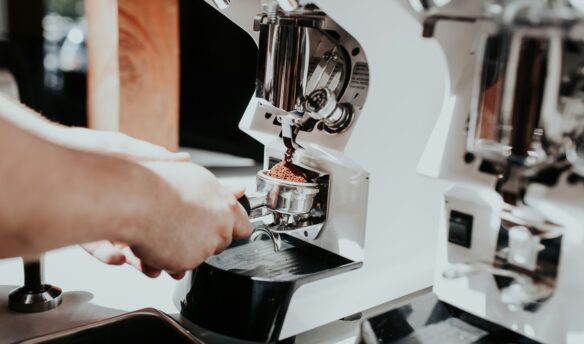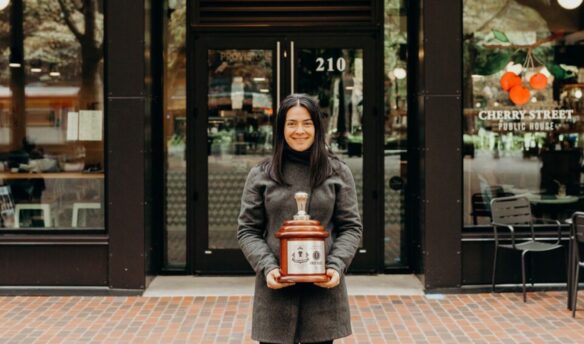Buenos Aires is a city known for its arts, architecture, music, and culture. Sometimes called the Paris of Latin America, the city is sprinkled with bares notables: café bars preserved and promoted throughout Buenos Aires due to their cultural significance and contribution to the city’s heritage. Also known as cafés notables, these include historic pool bars and pastry shops that have been in business for decades.
Though coffee is one of the main draws of these bars, their ornate interiors, central locations, and reputations often precede them. Where many cities in the United States often tear down cultural institutions, the city of Buenos Aires does what it can to protect these cafés.
Bares notables are so important to Buenos Aires’ culture and heritage that the city created laws to protect and promote them. Ley 35 (Law 35) established a commission to promote these bars, and Ley 5213 (Law 5213) codified activities that the city of Buenos Aires will promote to market these beloved cafés. These include hosting tango dances, theater events, and collaborations during city-wide festivals, such as an annual Museum Night and the FECA Coffee Festival. Thanks to these efforts, bares notables continue to thrive and reflect the unique history of Buenos Aires despite a challenging economy.
Traveling Through Time
Bares notables truly transport their visitors through time. Though many offer basics such as lattes, hot chocolate, and medialunas—buttery pastries shaped like half-moons—some bares notables have more eclectic offerings that reflect each space’s identity. It’s common to see menu items like Irish coffee, cocktails like fernet with Coca-Cola (a common drink enjoyed by porteños, or residents of Buenos Aires), cider, and national beer brands such as Quilmes.
Each café attracts different crowds, depending on its location and history. Located near the finance district by the Casa Rosada—where the President’s offices are located—and many hotels and hostels, Café Tortoni opened in 1858. Over the years, it has served many tourists, financiers, and local and international celebrities such as authors Federico Garcia Lorca and Jorge Luis Borges, First Lady Hillary Clinton, and Susan Sontag.
“The café is the oldest in the city, and it forms part of the city’s identity,” says Roberto Fanego, manager of Café Tortoni. “We try to adapt to the times and technology without losing the identity of the café.” Indeed, bares notables were once notorious for not providing wifi passwords nor vegetarian options, but consumer demand has forced bares notables to adapt and change over the years.
However, spaces like Café Tortoni have preserved their history through ornate decor. Modeled after a cafe in Paris, the dark wood walls and molding are covered in stately portraits and plaques of notable patrons. If you look up, you’ll see an elaborate glass ceiling made by the jewelry company Tiffany’s, which can make you feel, even just for a moment, like you’ve stepped back in time.
Some bares notables, such as La Poesía in the San Telmo neighborhood, are known for their décor and ambiance. With a piano in front of the bar section, La Poesía often invites distinguished musicians to perform during special events, usually sponsored by the city. Worn signs, bottles of vintage alcohol, pictures of famous former guests, old newspaper clippings, and wooden tables harken back to the 1930s and 40s—some of Argentina’s most prosperous years.
Bar Hipopotamo is located near another bares, Bar Británico, and is just across the street from Parque Lezama—one of the few hilly areas in Buenos Aires. It overlooks the modern Puerto Madero neighborhood and offers a glimpse of a past era in Buenos Aires’ history.
Its checkered black and white floor, brass beer taps, and abundance of signs in both Spanish and Italian are a reminder of Argentina’s Italian immigration wave. A cozy establishment, tables are smushed much closer together than in many American cafés, sometimes forcing staff and patrons alike to move sideways. With so many visually appealing elements and reminders of times past, bar notables inspire long conversations and convivial interactions.
Places To Linger
Tourists who visit one of the bares notables may notice that service is much different in Buenos Aires than in places such as the United States. Servers are helpful and kind, but many bars allow patrons to sit wherever they’d like and don’t fuss over customers.
Food is also usually prepared to order, and menu offerings often go beyond pastries and small breakfast items. At Bar Hipopotamo, for example, the kitchen makes everything from scratch, including stuffed pastas, bread, and meat and cheese plates (around the bar, you’ll see cloves of garlic and legs of meat hanging from the ceiling). Additionally, clients aren’t rushed to get out just to turn over tables, which allows visitors to read a book, write, or have conversations with friends and neighbors.
The service indicates that you can stay for as much or as little time as you’d like. Coffee and hot chocolate orders usually include a glass of water, for example, and customers who order beer often receive a small snack included in the cost of their beer. Peanuts and popcorn are the most common extras.
Perhaps one of the reasons bares notables remain so beloved—and why their service models haven’t changed—is because many famous people produced their best work in these spaces. Julio Cortázar and Jorge Luis Borges were known to write in Café Tortoni from time to time. Carlos Gardel—a prolific composer, singer, and actor—was also known to frequent bares notables to write some of his best-known tango songs. Laws enacted to protect and promote bares notables mention the cultural contributions of former clients who often wrote their works in these cafés.
Where Past and Present Meet
Like other businesses around the world, the COVID-19 pandemic had a profound impact on bares notables. Due to a decrease in tourism, continued COVID cases, and the economic fallout from the past two years, some cafés have yet to recover or reach pre-pandemic business levels.
“Downtown Buenos Aires was the most affected during the pandemic,” says Fanego. “There are few residents near the café, and most buildings near the café are offices, hotels, and other tourism-related services.”
Thankfully, Café Tortoni was able to make ends meet and is continuing to recover. This isn’t the case for other bares notables. Two well-loved bars, La Flor de Barracas, and the pastry shop inside Hotel Castelar, a historic hotel, shut down permanently within the first three months of the pandemic (the entire hotel shut down in 2020).
Along with changes due to the pandemic, the way residents drink coffee is also evolving. New, modern roasters and coffeehouses have opened up all over Buenos Aires, such as Lattente, Full City Coffee, and Salvaje Bakery. These cafés are also worth visiting and have helped increase the profile of cafés all over the city, but bares notables continue to capture and preserve a history that is slowly becoming more distant over time.
Despite Argentina’s constantly changing economy and its many challenges over the years, it’s evident that bares notables will endure— as long as patrons continue to cherish and fight for them. Their continued popularity, ability to honor past traditions while including thoughtful incremental changes, and respect for the contributions of former patrons prove that it pays to preserve history.

